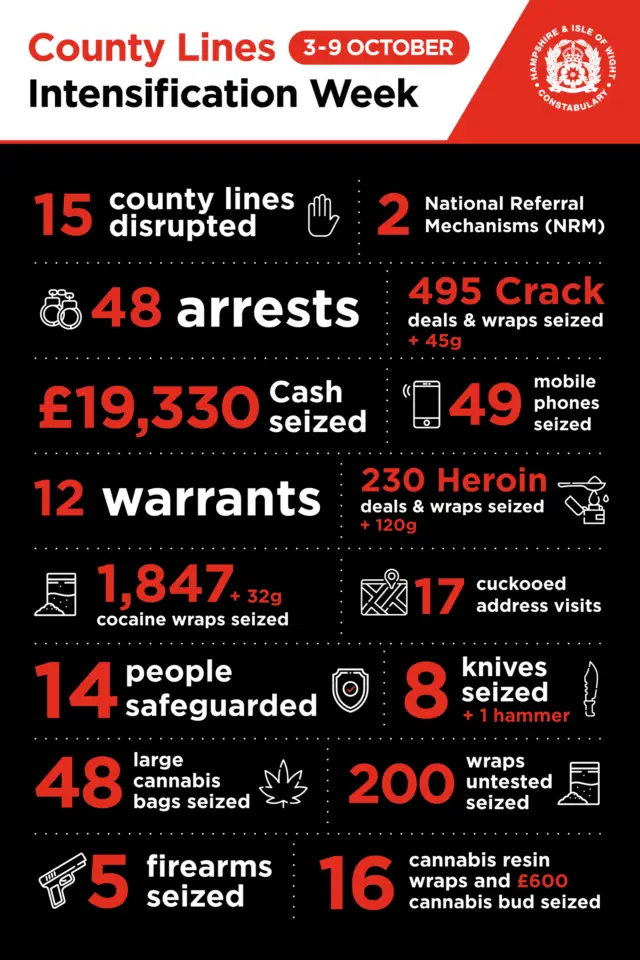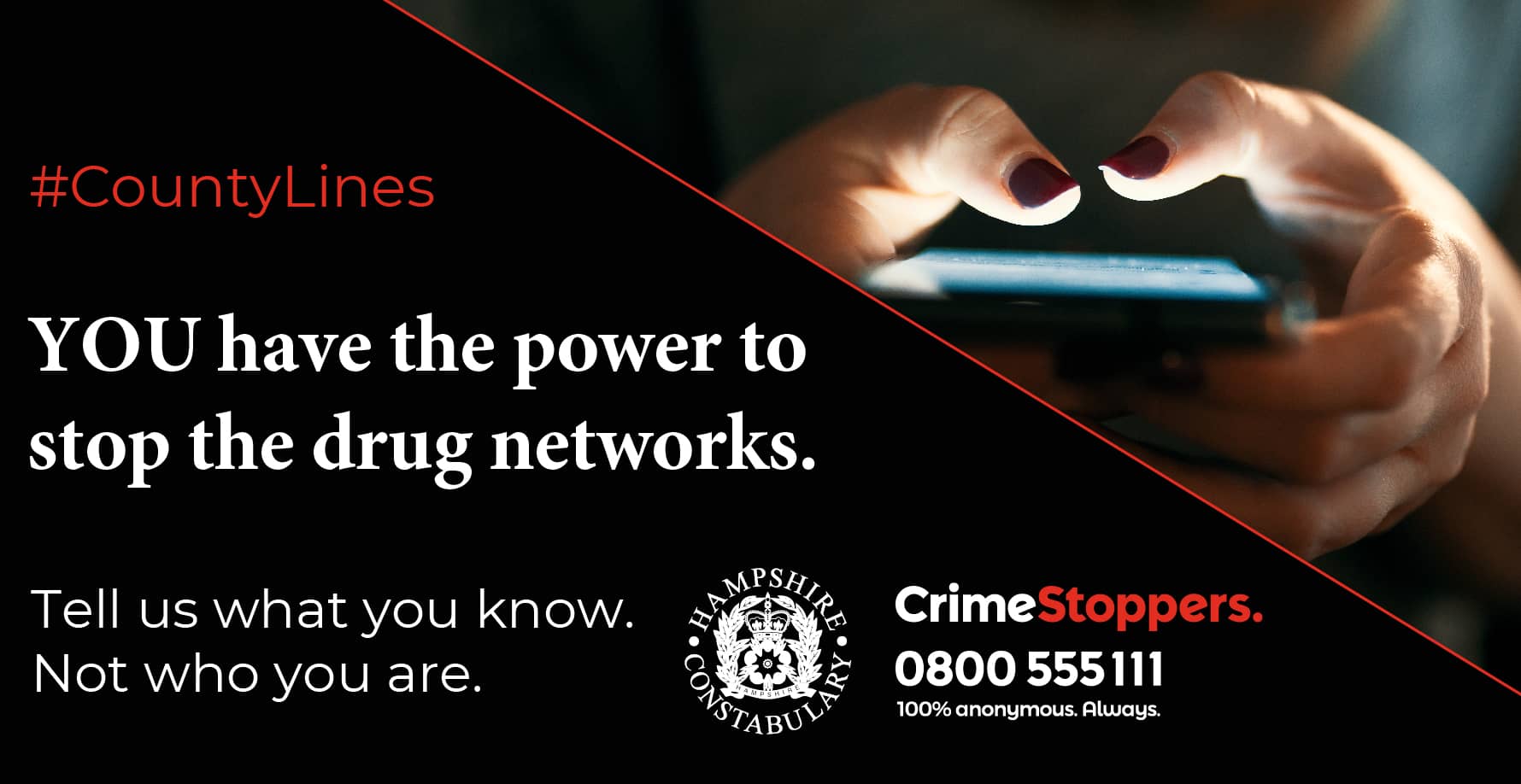Officers have been focusing their efforts on county lines, dismantling 15 networks as part of a national week of intensification to tackle the drug supply and related high harm that brings violence and misery to communities, and exposes young people at risk to exploitation.
48 arrests were made in relation to county lines offences over the course of the week, with twelve warrants completed; 49 mobile phones recovered; just over £19k in cash found; 8 knives, 5 firearms and large quantities of Class A and B drugs seized.
Plummer: Working harder than ever to crack down on county lines
Head of Serious Organised Crime, Detective Superintendent Nick Plummer, said,
“Our fight against drugs in Hampshire continues at pace. We are working harder than ever to crack down on county lines, which bring misery to communities in the form of drug dealing and violence.
“County lines operators adapt their system in response to relentless pressure from police forces. They vary their illegal activities to avoid law enforcement and seek new ways of exploiting vulnerable people in different areas of the country to run drugs for them. Our work during County lines week maintains this pressure on drug dealing lines, driving the harm they pedal from our communities, through the closure of drug dealing lines across Hampshire and the Isle of Wight and safeguarding victims.
“We are continuously working to identify new ways to crack down on this abhorrent crime with the ongoing support from our partners in health, housing, the National Crime Agency and other police forces. The results of this week of intensification speak for themselves with 48 arrests and 14 vulnerable people safeguarded. Large quantities of Class A drugs and offensive weapons and imitation firearms taken off our streets.
“Safeguarding groups and charities are a vital tool in the fight against county lines and we encourage members of the public to come forward with information to help those vulnerable people, including children, to be safeguarded.
“The success of these operations wouldn’t be possible without the intelligence that you, the community provide. Even the smallest pieces of information that is provided can often benefit our investigations. I’d like to thank the public for their assistance in continuing to report crime and intelligence to us either directly or via the independent charity Crimestoppers.”
Helping to safeguard children and vulnerable adults
Police work with relevant services, agencies and charities to help safeguard children and vulnerable adults, and use a variety of options available to them, including Rescue and Response referrals, strategy meetings, safety plans created/implemented and Modern Slavery Crime reports created.
A large part of these intensification weeks is about educating young and vulnerable people on the dangers of county lines and the signs of exploitation to look out for. Where any child or vulnerable person is identified as being exploited or trafficked, or suspected of being so, a national referral mechanism is made through the use of Modern Slavery legislation.

Newman-West: Committed to tackling the threat of County Lines criminality
Detective Inspector Lee Newman-West, County Lines Regional Co-ordinator from the South East Regional Organised Crime Unit (SEROCU) said,
“County Lines criminality causes severe harm and has such negative effects on our local communities, putting the most vulnerable in society at risk from exploitation and significant harm.
“As a collective in our forces, within SEROCU and the National County Lines Co-ordination centre (NCLCC), we are committed, along with our partners, to tackling the threat of County Lines criminality to make our communities safer places. Collaboration and joint working in partnership is absolutely key in identifying and disrupting those causing harm in our communities and protecting and safeguarding those at risk.
“Our work extends far beyond weeks of action and our commitment to tackling these issues continues relentlessly. We are making a real difference by taking large amounts of drugs out of our communities and safeguarding vulnerable adults and children and we thank the public for their support.”
Spotting the signs of exploitation
For more information on spotting the signs of exploitation please visit The Children Society’s Website.
Missing People SafeCall provides a confidential service to individuals who may make contact anonymously. This means that any individual who is unwilling or unable to speak to police or professionals can still be provided with specialist advice and guidance concerning County Lines and exploitation. National Helpline that operates 7 days a week 9am to 11pm – call or Text 116000.
Supporting the victims of County Lines
There is also Home Office funding for support to victims of County Lines over the next three years, as part of the government’s Drugs Strategy.
This funding will help to provide much needed mental health support and counselling to the young people and their families, to help deal with the trauma of their experiences.
News shared by Hampshire and Isle of Wight Constabulary, in their own words. Ed





